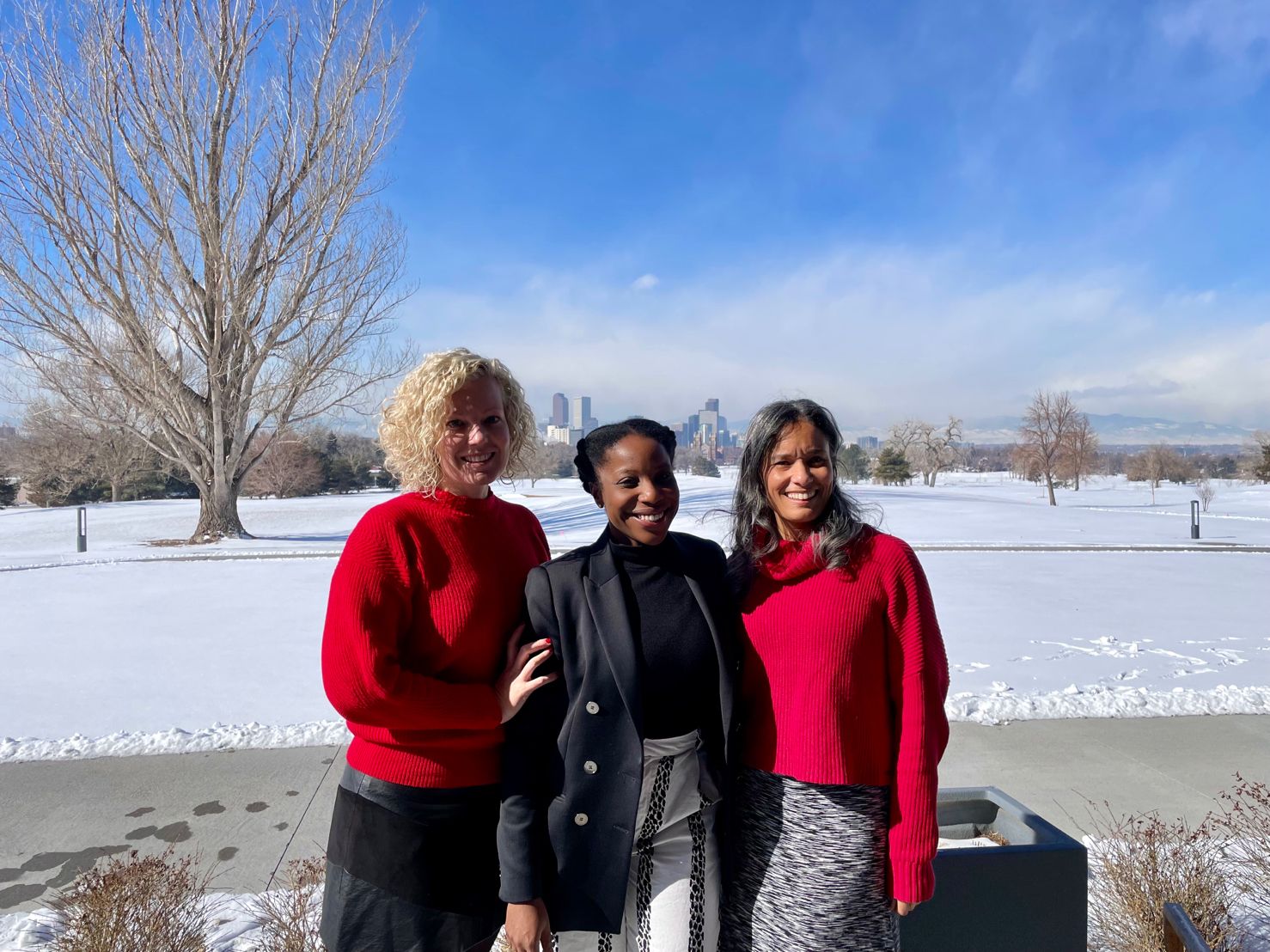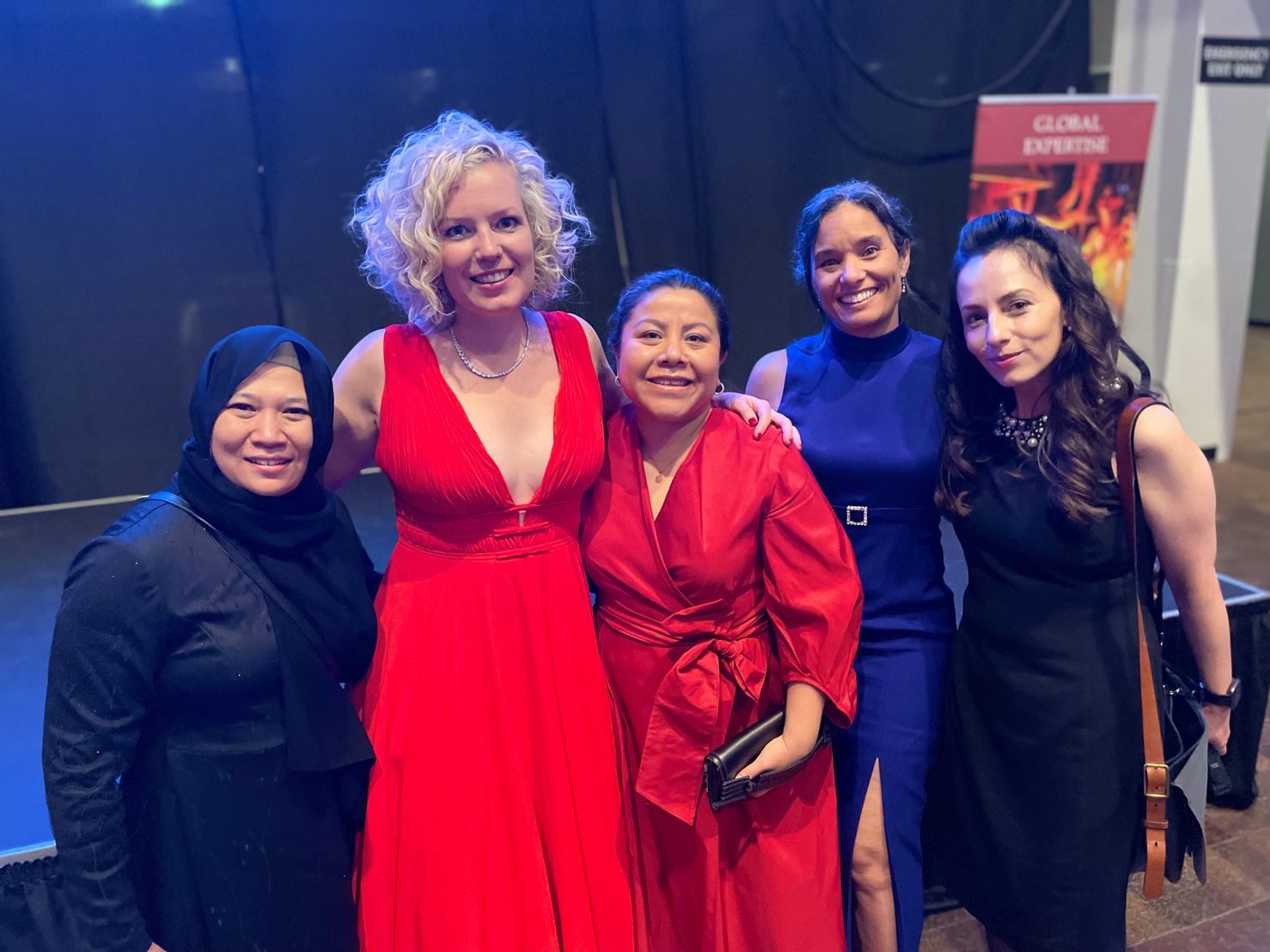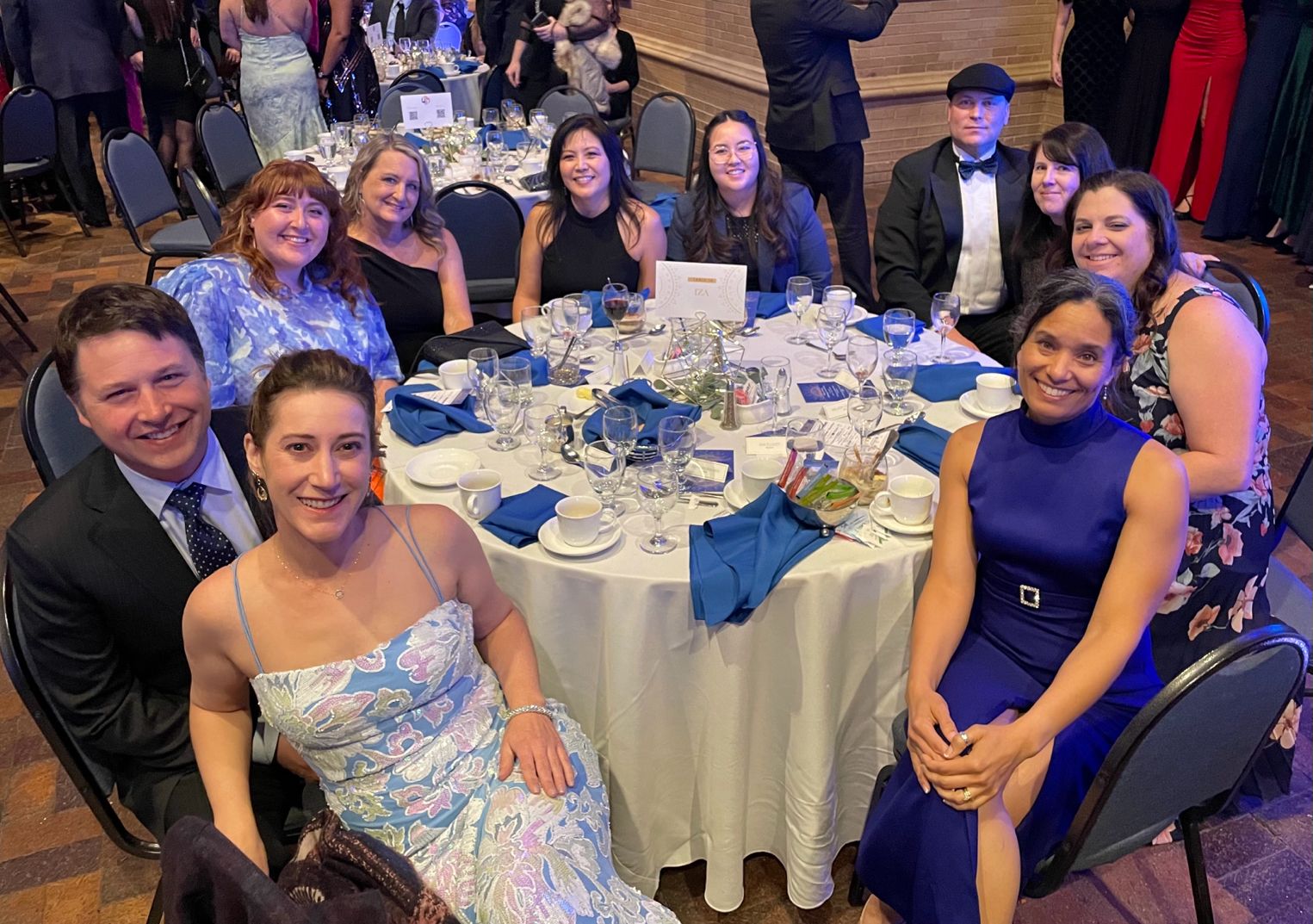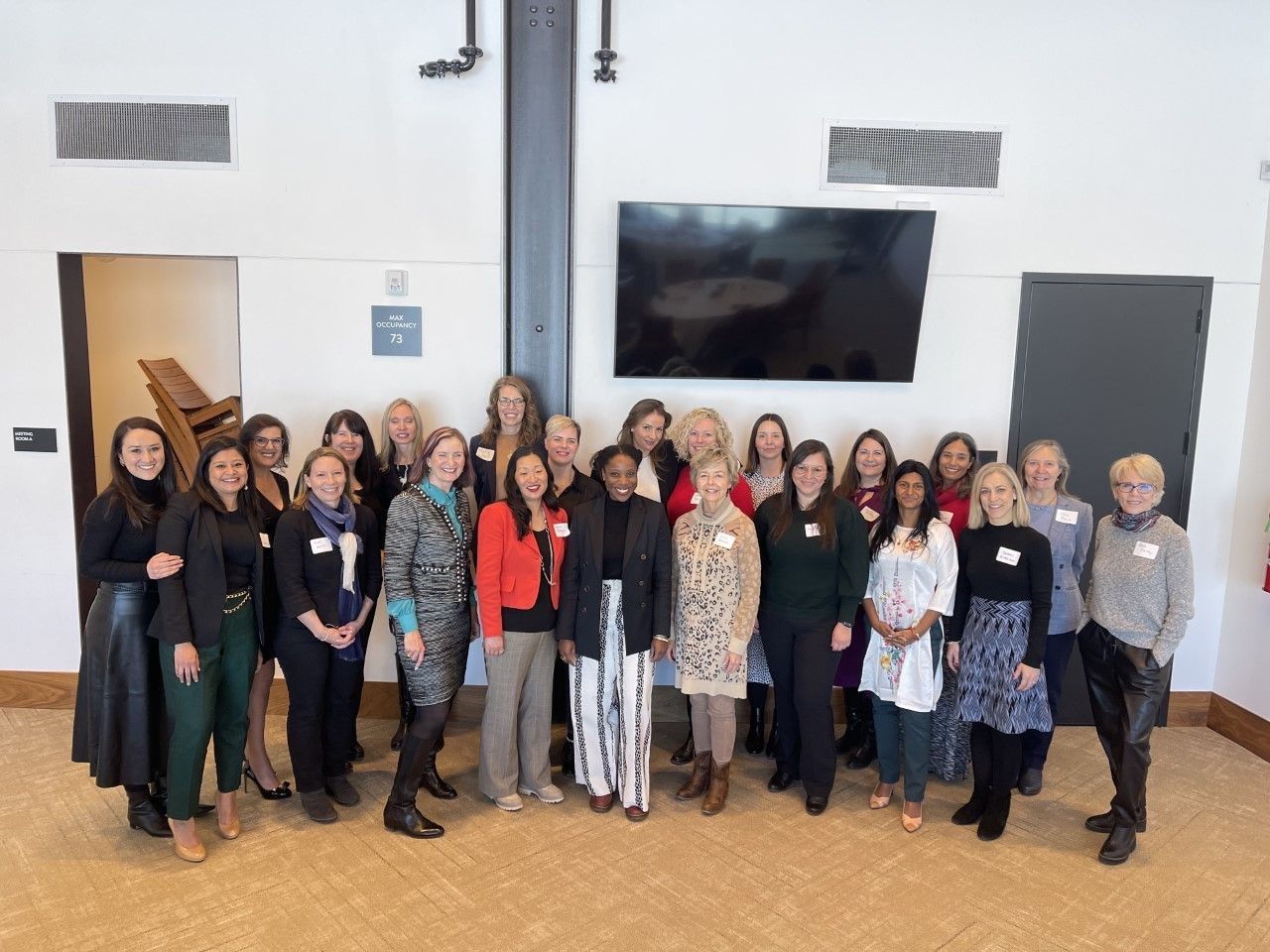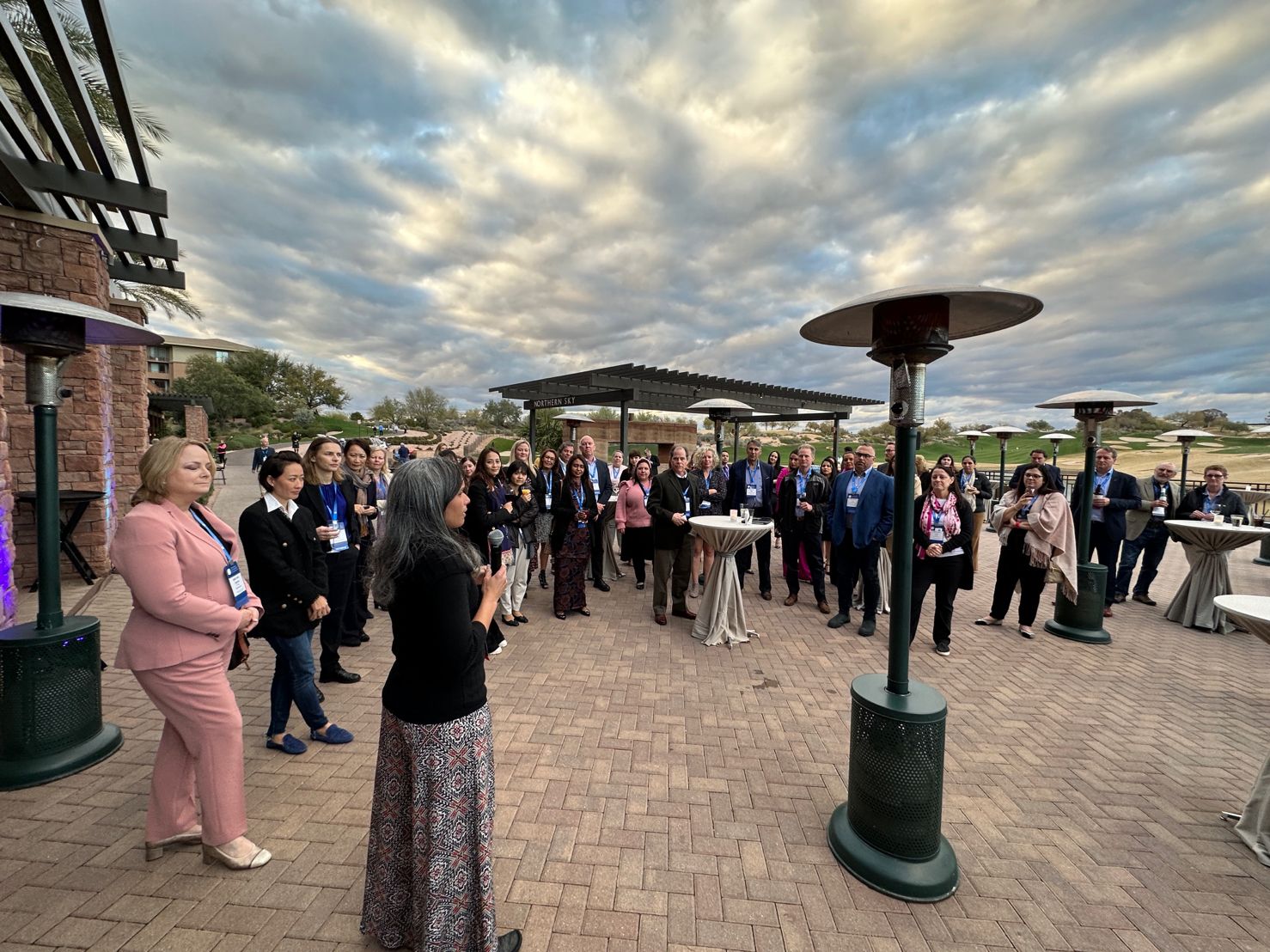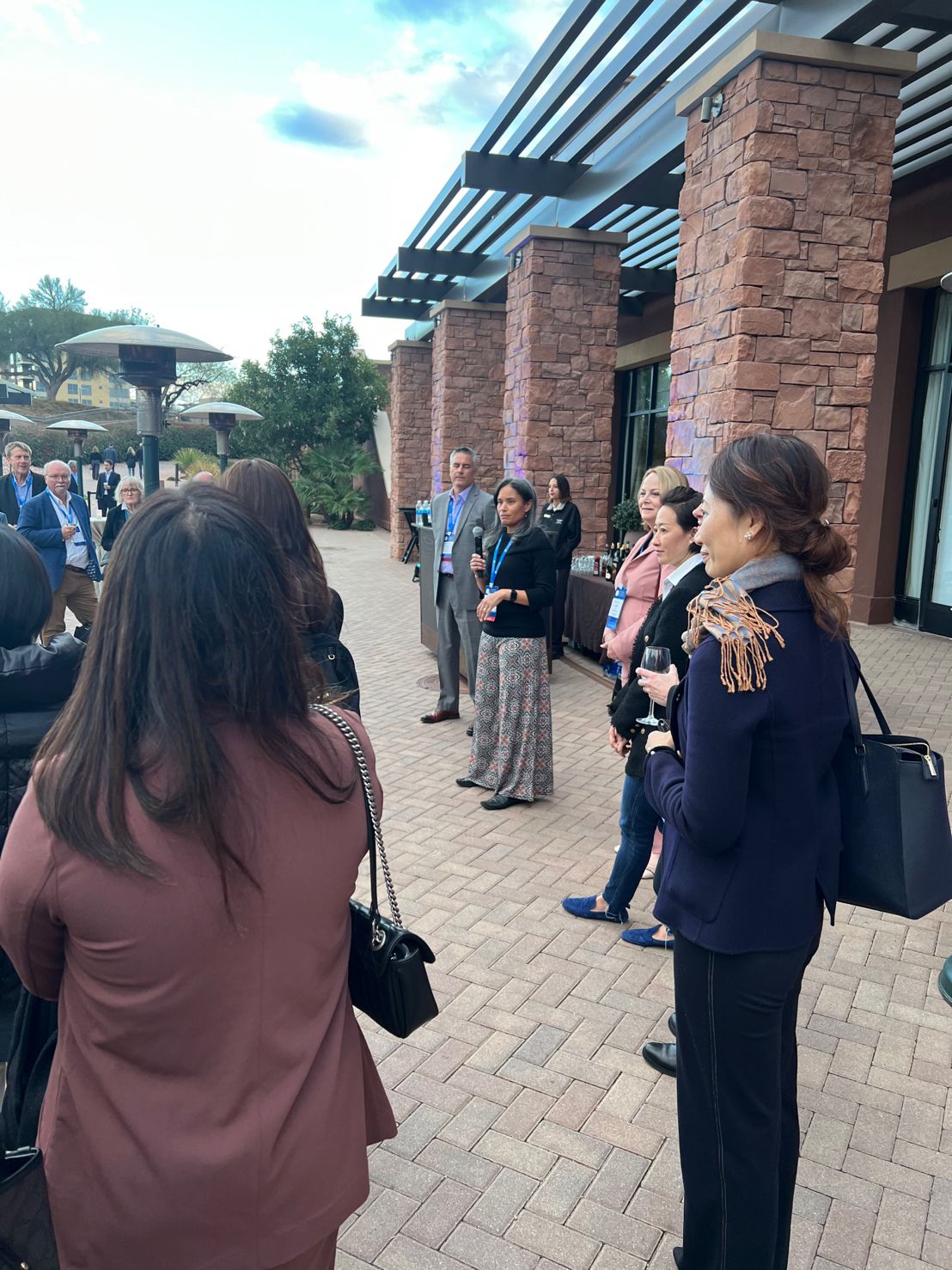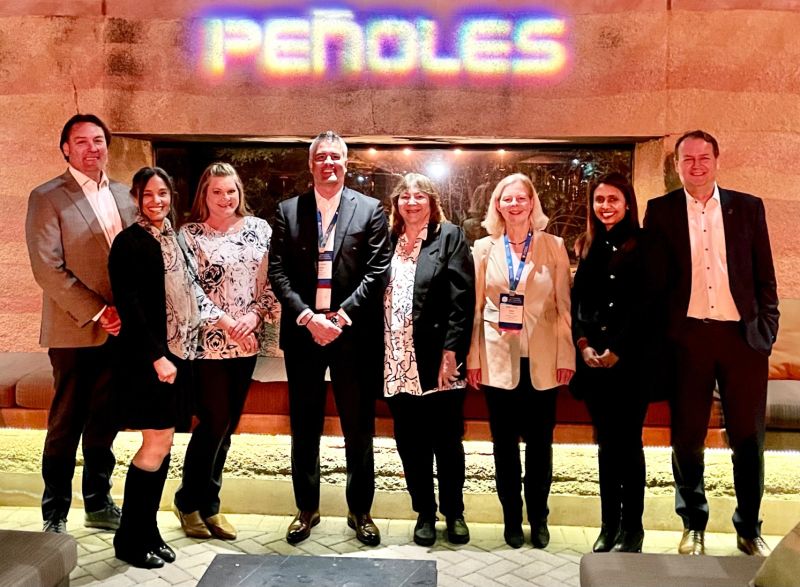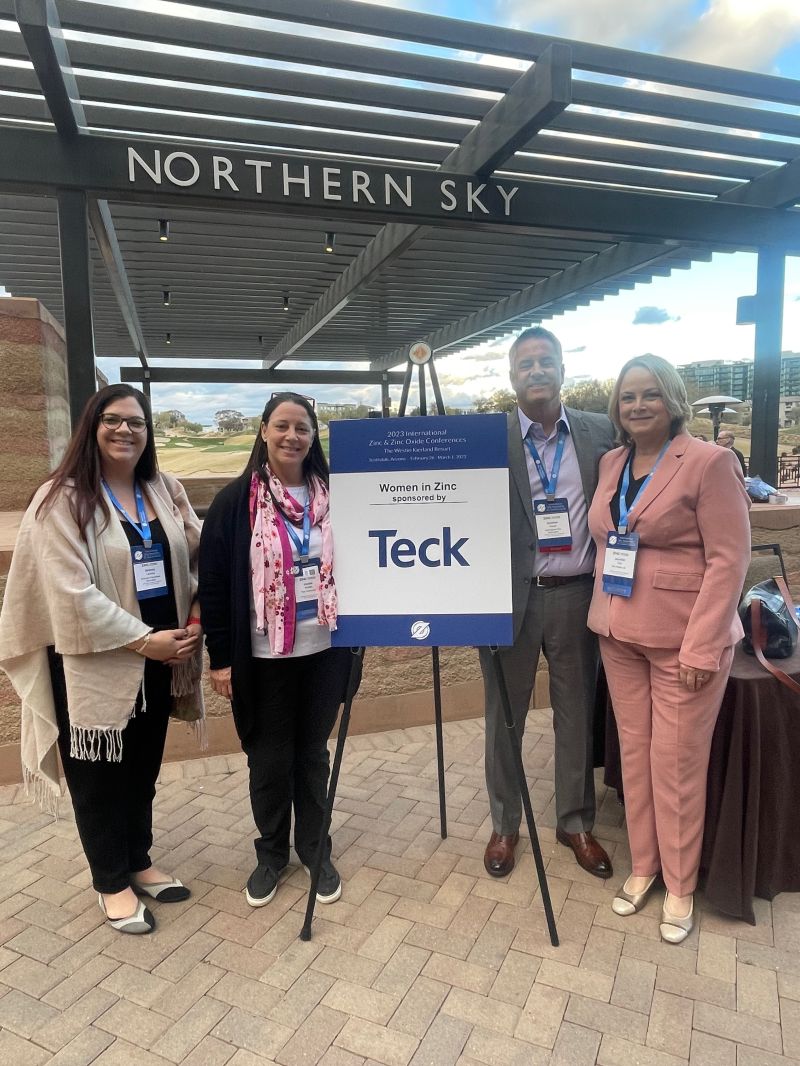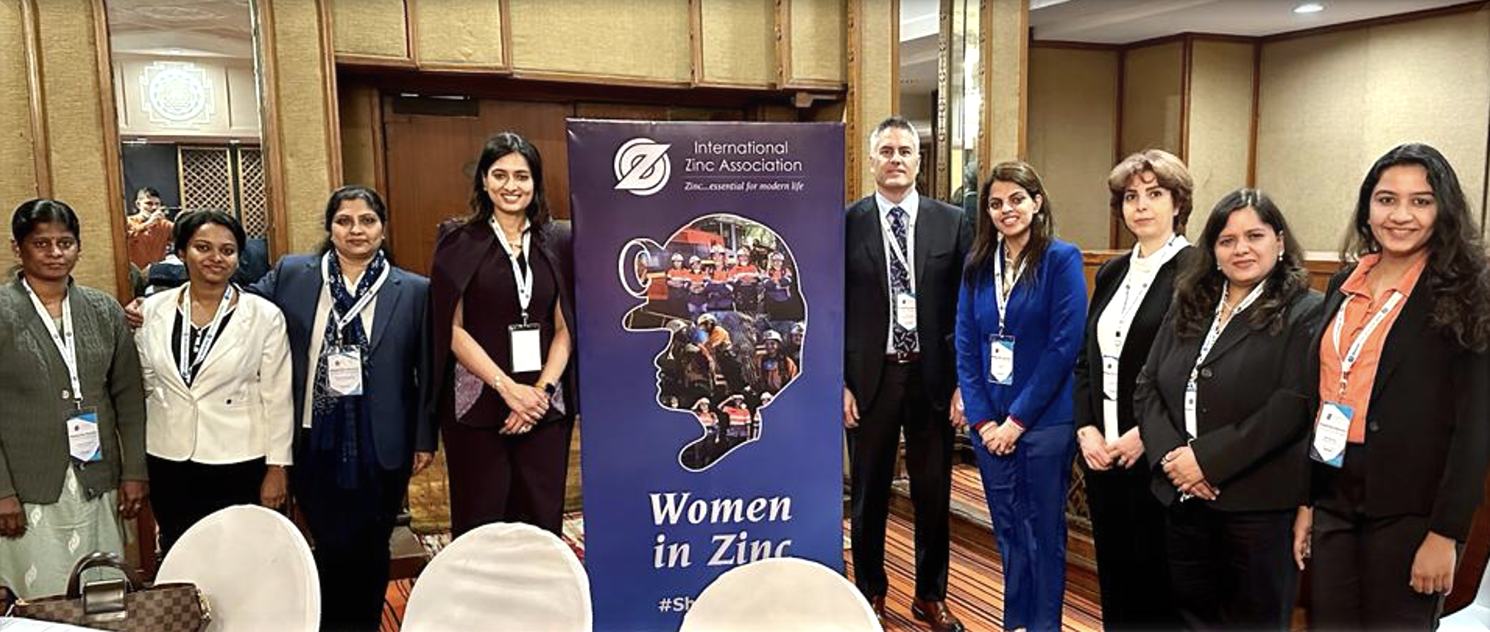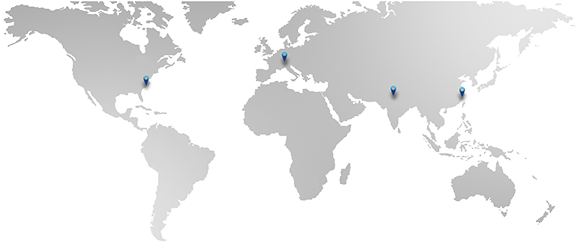WOMEN IN ZINC
Women working in the zinc industry today are rather an exception than the rule. IZA would like to change this, and as a step forward, we have launched the Women in Zinc (WIZ) initiative to connect women, support women, and promote the zinc industry as a career option for women.
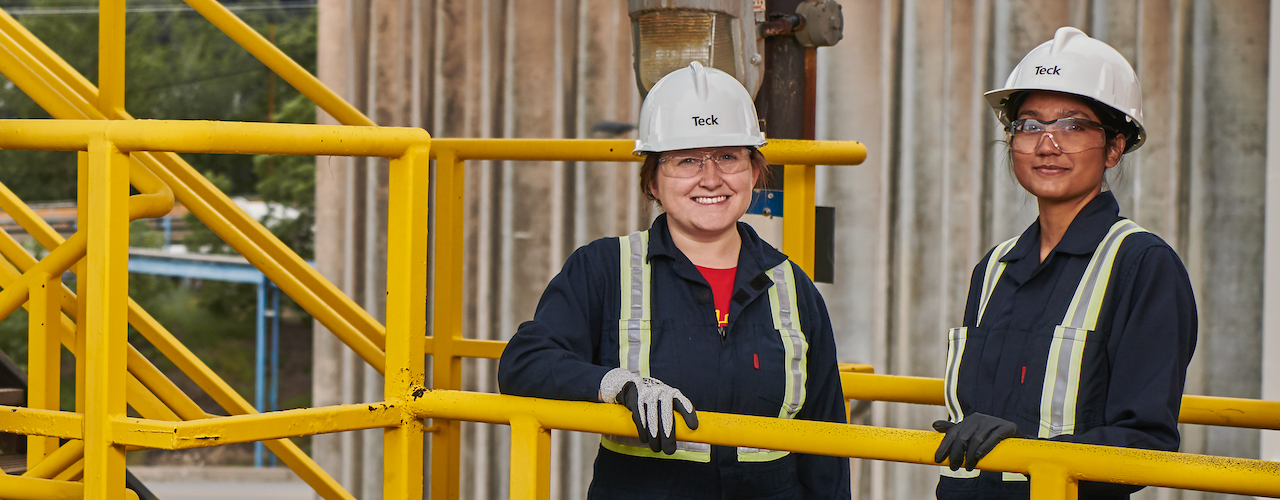
WIZ VISION
Become an integral and effective support organization for women working in zinc.
WIZ MISSION
Introduce, connect, support, and promote women in the zinc industry by creating networking opportunities, organizing meetings, sharing knowledge, and utilizing our communication pathways.

WIZ ACTION PLAN
CONNECT
- Create networking opportunities at IZA events
- Organize meetings with company board members
- Connect with other networks
- Create regional chapters
SUPPORT
- Share knowledge via mailings
- Mentorship for young professionals
PROMOTE
- Feature WIZ on IZA Website and Social Media
- Share job opportunities
Women In Zinc Events
Job Opportunities in Mining
The International Women in Mining (IWiM) organization works to generate more and better opportunities for women in mining by maintaining a job listing portal with available opportunities.
Women Leading the Way
Introducing the formidable members of Women in Zinc, a dynamic ensemble of talent, dedication, and vision. Each brings a unique set of skills and a fresh perspective, pivotal in shaping our collective journey. Their unwavering commitment, resilience, and creativity set the gold standard for excellence. Let's celebrate the brilliance and diversity they infuse into our mission!
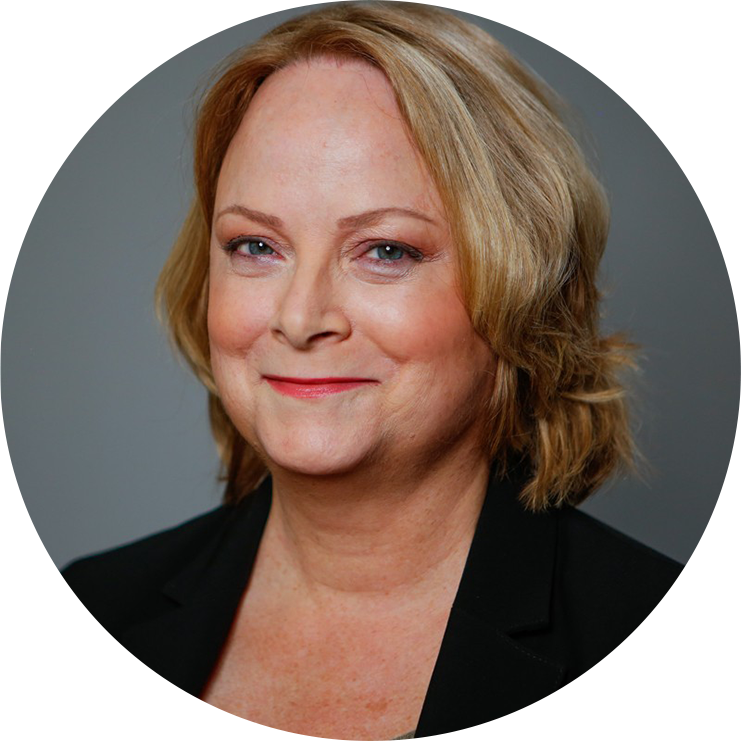
Jennifer Coe
Manager North American Zinc Metal Sales, Teck Metals Ltd.
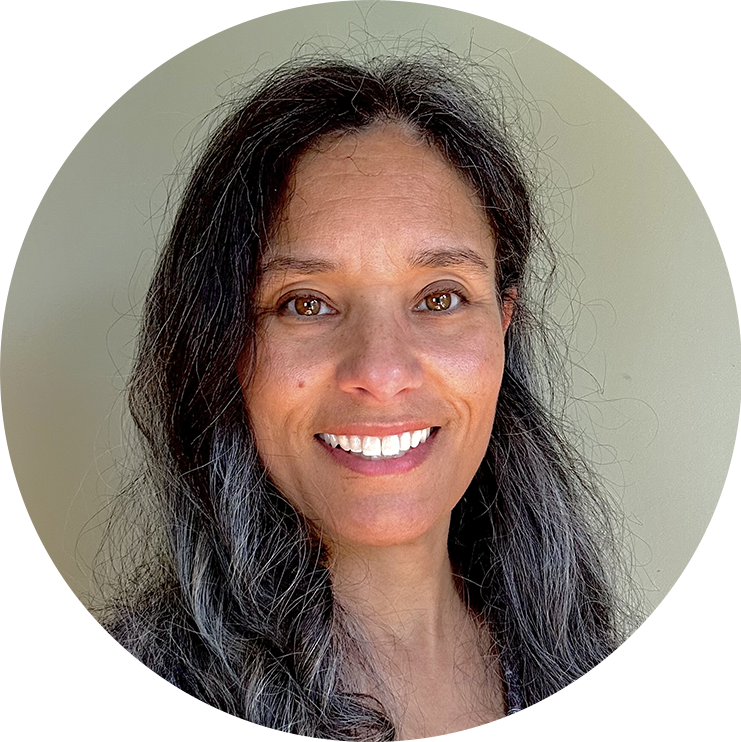
Kim Elliott
Finance Director, International Zinc Association
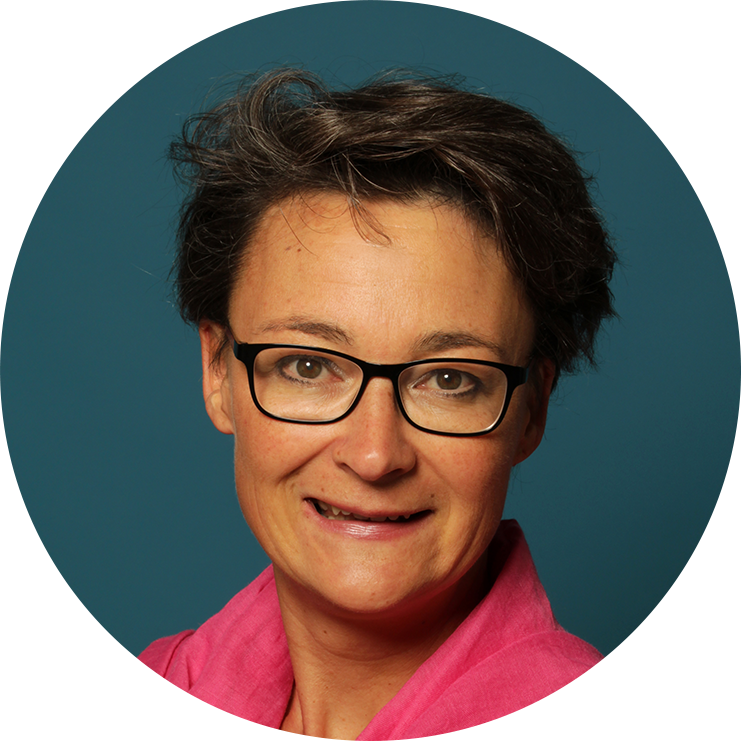
Sabina Grund
Associate Director, Sustainable Development, International Zinc Association
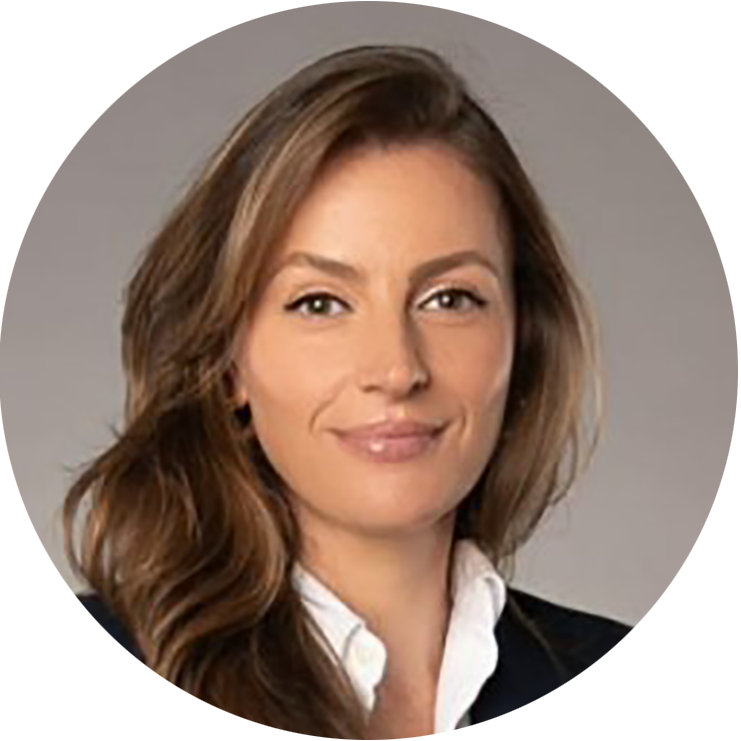
Sophie Kellerman
Sustainability Manager ZincCopper (Marketing) – Glencore
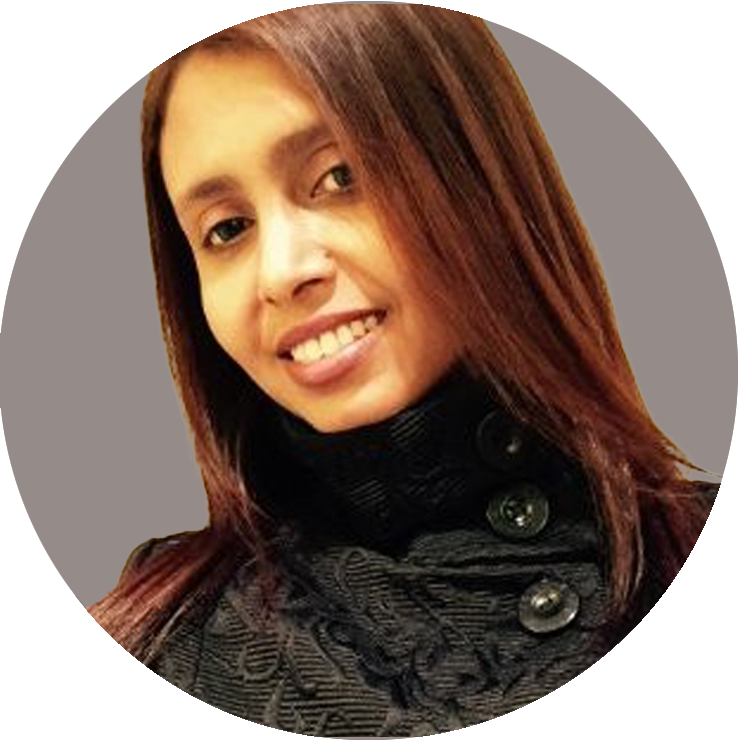
Banu Nargis
President, ZincGrey
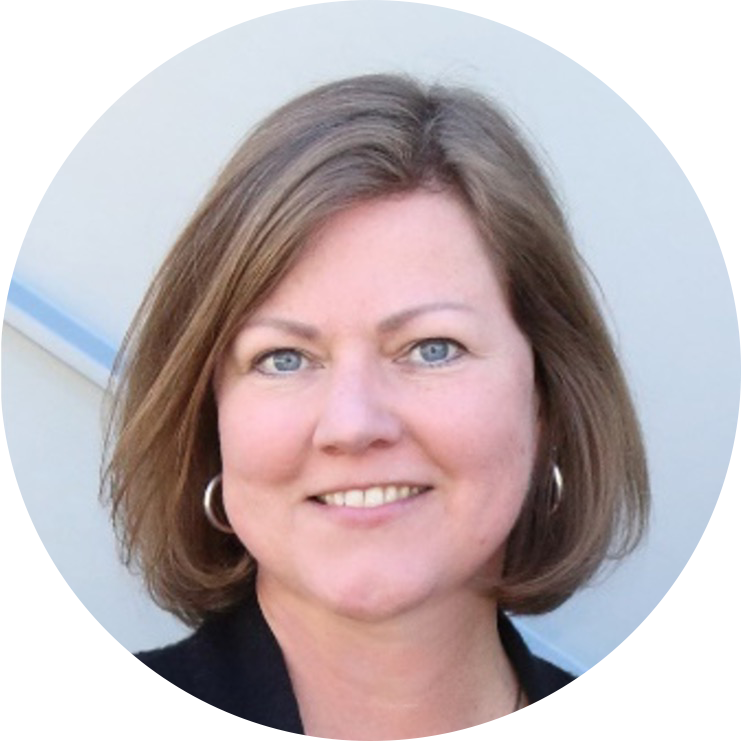
Dr. Marianne Schönnenbeck
Head EHS/ Sustainability Director, RHEINZINK GmbH & Co. KG/ Grillo Werke AG

Jennifer Coe
When did you join the zinc industry?
I joined Teck over 25 years ago.
What made you accept a job in the zinc industry?
I found my way to Teck as a consultant working on various zinc and lead related projects at their Product Technology Center. I had a Senior Manager mentor me to consider the idea of joining the zinc industry as a full-time career. He thought I would bring a different perspective and energy as a female and that I had a varied background of technical sales and arts. I was reluctant to take on the challenge at first but after working with great people, and seeing the opportunities for learning and travel, I decided to take a chance on the metals and mining industry full time.
What makes you stay and what do you really like about it?
As I grew within the company, I enjoyed the opportunities to keep learning, and in fact, Teck sponsored me and others to achieve our EMBA at Simon Fraser University (Beedie School of Management). I also liked the challenges of growing as a leader, and the opportunity to learn new products, meeting new customers and understanding our different customer industries.
What achievements for women have been made during your time in the zinc industry?
I’m starting to see more women in senior leadership roles at Teck and within the mining and metals industry and hopefully we continue to see the list grow. Teck’s Diversity Program and support for Women In Zinc is really inspiring. “WIZ” is already helping zinc producers and consumers see that indeed, there are too few women in our industry, and we need to focus our energies on ways to attract, promote and retain them.
Where do you see potential for attracting and retaining more women to the zinc industry?
This is one of the reasons we started “Women in Zinc” – to improve on the “how”. Associations such as the IZA can help bring more insight and offer networking to influence change. Sharing with other women how we enjoy our careers, that we want to see more women join us and succeed is critical and to be encouraged. Hopefully can help improve the sense of community for women within our industry, and that it is of vital importance to our economy, quality of life, and climate change goals.

Kim Elliott
When did you join the zinc industry?
In early 2016, I took a position with EverZinc in Raleigh as they needed a Financial Controller. I stayed with EverZinc until they moved the financing function to Canada in 2019.
What made you accept a job in the zinc industry?
I accepted a job in finance that happened to be in the zinc industry.
What makes you stay and what do you really like about it?
After leaving EverZinc, I worked for a bit in finance with Umicore, but when the opportunity in 2020 came to join IZA as a Financial Controller, I jumped at it. I still had a lot to learn about the industry, but I liked the prospect of continuing to work with people who were genuinely working to improve many aspects of life through zinc.
What achievements for women have been made during your time in the zinc industry?
Being a part of the launch of Women In Zinc is very rewarding. As I meet many women across the globe, I am intrigued and impressed and very hopeful for the future. We continue to see more women in leadership positions which is a win for the entire industry.
Where do you see potential for attracting and retaining more women to the zinc industry?
There appears to be extreme potential as women remain underrepresented in the industry. Through initiatives like Women In Zinc, women and men alike can see the positive impact of having more women in all positions. As we promote more programs geared to women and make mentoring and networking an integral part of the companies across the industry, women will be attracted to the careers offered and will not want to leave.

Sabina Grund
When did you join the zinc industry?
I joined Initiative Zink, the German zinc association in 1999.
What made you accept a job in the zinc industry?
Already in my studies at the technical university of Aachen in Germany, I focused on zinc production. Working on my doctorate thesis involved projects with zinc producing companies. It was a natural fit to accept the offer of coordinating Initiative Zink in 1999 which over time developed into the German zinc association. In 2018, I moved on to the International Zinc Association, focusing on sustainability and broadening my view far beyond Germany and Europe.
What makes you stay and what do you really like about it?
In the first years working for an association was a good opportunity to combine being a mother with a job in which I could make use of my expert knowledge and experience with the zinc industry and learn about zinc uses and advocacy. Home office, working part time and keeping my links to industry alive were key at that time.
Today, I enjoy building on all those years of learning and developing skills in my role as Associate Director Sustainability. I am part of a great team, and I work with experts from the zinc industry, science, and various stakeholder groups. The zinc industry is comparably small. You always meet again. I experience constructive cooperation, encouragement, and support in a space where we can still shape future developments for our industry.
What achievements for women have been made during your time in the zinc industry?
The answer to this question very much depends on the geography and jurisdiction you are located in. At a global scale, I see more women in leading roles, and I find an increasing diversity and overall awareness.
Where do you see potential for attracting and retaining more women to the zinc industry?
Attracting more women in the first place is linked to a change of the image of our industry. The credibility of an industry is important for all employees. As long as mining and metal production are perceived as a cause for climate change, pollution, and injustice, it is difficult to attract young people at all. In fact, our industry and products are enablers of ESG principles, but this is not very well known.
Depending on the jurisdiction a woman lives and works in, different measures will make working in the zinc industry more attractive. This could be linked to safety concerns, equal payment, career opportunities, flexibility, and support in challenging and demanding family phases. Companies can make a difference in all these fields by establishing a supportive company culture.
Overall, networking opportunities for women and mentorship programs are a good way of supporting women that already joined the zinc industry.

Sophie Kellerman
When did you join the zinc industry?
In 2010.
What made you accept a job in the zinc industry?
The industry itself but also very much the people. I accepted the job for initially a legal position for the zinc/copper department of Glencore where I managed that team for several years, and then 3 years ago, I took on a newly created position of Sustainability Manager for the ZnCu dept. and am growing the team as we go, handling Responsible Sourcing, LME, Carbon/Scope 3, Industry Associations, etc. It has been a great ride in the industry and have seen a lot of positive developments in the past 13 years and especially the past years with regard to emissions and sustainability a whole new world has opened again for our industry – so it's always in movement/development which I really appreciate.
What makes you stay and what do you really like about it?
I love the industry, the people and the positive impact the industry has on the world, and the fact that our commodities are in your everyday products (from Windmills, to mineral sunscreen, to your electric vehicle and mobile phone).
What achievements for women have been made during your time in the zinc industry?
I believe big strides have been made, more women in managing positions, more role models are being shown, more visibility around women in the industry and lots of promoting of the industry also to (young) women to start with us in the industry. The industry is not only mining or the usually hard physical work associated with it, there is so much more to it! Like Legal, Accounting, IT, Public Relations, Government Relations, and of course Sustainability!
Where do you see potential for attracting and retaining more women to the zinc industry?
Flexibility generally has the potential to allow for more women to combine with their professional career and personal life and hustling it all. I believe we need to show more role models which other (young) people can identify with and/or to learn more about the industry (through universities/schools, job fairs, etc).

Banu Nargis
When did you join the zinc industry?
In 1998, I was contacted by the Managing Director of Larvik Pigment for aninterview for a position in the zinc industry that I hadn't applied for. Thereafter, I was promoted to be in charge as a Purchasing Head of Department and Import, responsible for buying secondary zinc, primary zinc, equipment for zinc dust plant and responsible for government approval (Environment department , Customs and Ministry of Industrial).
What made you accept a job in the zinc industry?
In light of the environment and the explanation I received from the Norwegian managing director, I appeared to be interested in accepting the position in zinc industry. After a few years in the sector, I feel more inclined to gain more knowledge and expertise.
What makes you stay and what do you really like about it?
Having dedicated several years to the company from 1998 to 2012, I embarked on a global visit to galvanizers to check product quality before procurement. This involved visiting various galvanizing plant factories worldwide. Notably, at the Larvik factory, I gained expertise in the zinc dust process, different grades of zinc dust suitable for the paint industry and batteries. The management of zinc oxide derived from both secondary and primary processes by Umicore group. Additionally, I learned more during Umicore where I delved into the fertilizer zinc industry, dealt with the London Metal Exchange (LME), and implemented hedging strategies for all acquired zinc products. This multifaceted involvement fostered my passion for the industry, a passion that persists to this day.
What achievements for women have been made during your time in the zinc industry?
As a woman in this field, I take pride in my accomplishments, leveraging my extensive knowledge to visit more than 150 galvanizing plants worldwide. This hands-on experience has bolstered my confidence in material dealings, allowing me to adeptly assess and understand the intricacies of various processes, type of materials , ensuring a nuanced grasp of product content and quality. Moreover, as an Asian woman, it is not common for a woman to work in an industry dominated by men. I am the first Malaysian woman who started in zinc! I have attended many conferences and been as speaker in zinc where there were very few women in present. In my 25 years I have visited more than 25 countries to support the zinc industry.
Where do you see potential for attracting and retaining more women to the zinc industry?
In this industry, you must think like a man. You must be passionate and professional when making decisions. Do not complicate things as it would not be easy over the long-term business. Most important, more women should enjoy learning and think zinc, since it’s lifesaving for our daily life.

Dr. Marianne Schönnenbeck
When did you join the zinc industry?
I joined RHEINZINK directly after finishing my studies, in 1995.
What made you accept a job in the zinc industry?
When I started out, I did not really look for a job in the zinc industry. Job opportunities for chemical scientists were scarce at the time, and I was happy to get a job in the industry at all. However, I soon found out it was a good decision (which is why I am still there…).
What makes you stay and what do you really like about it?
After I started working in the R&D department of RHEINZINK’s, I found that I really liked working in a practical environment, not only under lab conditions. Shortly afterwards, the Risk Assessment Zinc started (a precursor of REACH), which I found absolutely fascinating, if demanding. I stayed at RHEINZINK’s, because every few years, something new came along: I headed a production plant for some time, headed the quality control department, built up our environmental and energy management systems, got the opportunity (and the funds) to get a master’s degree in environmental science, and went to head our EHS department afterwards. So it never gets dull.
What achievements for women have been made during your time in the zinc industry?
When I started out, I was the only woman in the Technical department (300 employees). By now, we are more women, but especially, the amount of women in leading positions has increased (even in the Technical department). And the tone has changed- it was a lot rougher when I started, but by now, people (even men!) have even started to use gender neutral speech.
Where do you see potential for attracting and retaining more women to the zinc industry?
This is a very important question, especially in a country like Germany, where demographics increases the “war for talent”. I think companies will have to adapt to the needs of women very fast in order to secure their talent- starting with flexible work hours (homeoffice), child care opportunities, career opportunities, and also taking into account equal opportunity issues- e.g. closing the gender pay gap, and actively going against discrimination and harassment. Generally speaking, company culture will have to change into a more “feminine” one.
